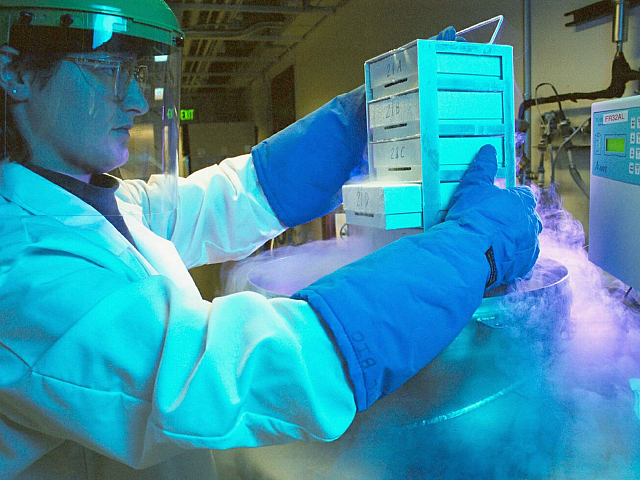A survey has revealed that 44 per cent of British women aged 18 to 24 said they would consider freezing their eggs in the future, while a quarter of those in that age group also admit to being concerned about their fertility.
The poll, conducted by the UK’s Royal College of Obstetricians and Gynaecologists (RCOG), also found that almost half (49 per cent) of all British women say they are worried about their fertility.
Across all age groups, one in nine women (11 per cent) told researchers that they have frozen or considered freezing their ova, with 34 per cent saying that they would consider doing so in the future.
The findings of the survey were released after the European Union’s statistics office revealed that birthrates across the bloc in 2017 had fallen on the previous year — with not one of the 28 EU member states having come close to the replacement level of 2.1 births per woman needed to maintain a population — and that the average age of first-time mothers had risen to 29.1 years.
The United Kingdom, however, still managed to have the fifth-highest births per woman at 1.74, with a mean age for first-time mothers a little less than the EU average at 28.9 years.
Fertility Falls in EU, Not ONE Country Hits Population Replacement Level https://t.co/C0ASzuOBms
— Breitbart London (@BreitbartLondon) March 14, 2019
Meanwhile, National Records of Scotland (NRS) revealed Wednesday that the country has seen its lowest birthrate since records began in 1855, with the 12,580 births being outnumbered by the 14,484 deaths between October 1st and December 31st, 2018.
The decade-long decline in births is reportedly due to parents putting off having children over concerns of financial uncertainty, the beginning of the rapid fall coinciding with the 2008 economic downturn.
“There is no single reason for the fall in the number of births, but possible causes may include the postponement of childbearing until older ages, often meaning that women will have fewer children; and economic uncertainty influencing decisions around childbearing, particularly given that the beginning of the recent fall coincided with the financial crash a decade ago,” NRS said.
Scottish Leader: Using Mass Migration to Grow Population ‘Most Important National Challenge’ https://t.co/IBxOiML5WC
— Breitbart London (@BreitbartLondon) January 16, 2018
The Metro reports that the number of women in Scotland having their first child between the ages of 25 and 29 had fallen by nearly 10 per cent, with the number of women having children in their early 20s having halved in just 30 years.
Members of the Scottish government reacted to the news not by prioritising increasing natural population growth, but reminding the British government, currently managing the UK’s exit from the EU, how important immigration and the free movement of people is to the country.
Scottish Nationalist Party (SNP) Migration Minister Ben Macpherson said, “These latest statistics provide more evidence of the importance of migration to Scotland and show births are at the lowest levels since records began.
“All of Scotland’s population growth over the next 25 years is projected to come from migration.”
While Green party Member of Scottish Parliament Ross Greer said the data “demonstrate the importance of immigration to Scotland.”
For Scotland, Continued Access to Mass Migration Is Top Brexit Priority https://t.co/cof3OU2f6I
— Breitbart London (@BreitbartLondon) April 13, 2018

COMMENTS
Please let us know if you're having issues with commenting.